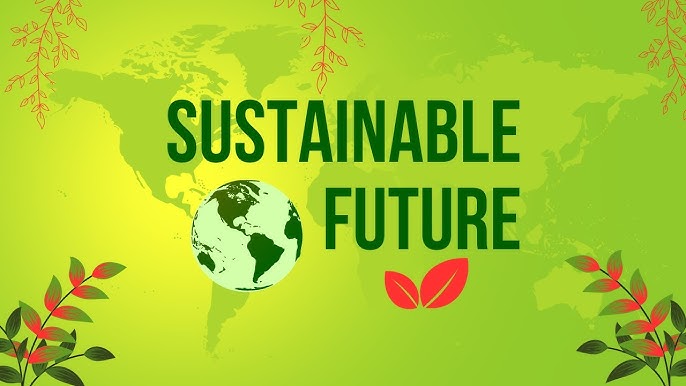Sustainability has transitioned from being a buzzword to a core principle for modern businesses. As consumers, investors, and governments demand more responsibility from corporations, sustainable practices are no longer optional—they are essential for growth and competitiveness. Here’s why sustainability is shaping the future of business growth.
Changing Consumer Expectations
Today’s consumers are more conscious of the environmental and social impacts of their purchasing decisions. They prefer brands that align with their values, such as reducing waste, using renewable energy, or sourcing materials ethically. Companies that embrace sustainability are better positioned to build trust and loyalty with this growing market segment.
A study by Nielsen revealed that a staggering 81% of global consumers feel strongly about businesses improving the environment. This shift means that sustainability isn’t just an ethical choice but a strategic one to attract and retain customers.
Cost Savings Through Efficiency
Sustainability initiatives often lead to operational efficiencies that save businesses money. By adopting energy-efficient technologies, minimizing waste, and optimizing supply chains, companies can reduce costs while reducing their environmental footprint. For example, switching to renewable energy sources or improving water usage can significantly lower utility bills over time.
Many organizations have reported substantial savings from sustainable practices. For instance, companies implementing circular economy models—recycling and reusing materials—have reduced raw material costs and waste disposal expenses.
Regulatory Compliance and Incentives
Governments worldwide are enacting stricter environmental regulations to combat climate change and protect natural resources. Businesses that proactively adopt sustainable practices are better prepared to comply with these regulations, avoiding fines and reputational damage.
Additionally, many governments offer incentives such as tax breaks, grants, and subsidies to encourage sustainable practices. Companies that invest early in green technology or sustainable operations can benefit financially while staying ahead of competitors.
Attracting Investors and Capital
Sustainability has become a critical factor for investors when evaluating potential opportunities. Environmental, Social, and Governance (ESG) metrics are now a standard part of investment decisions. Companies that demonstrate strong ESG performance are more likely to attract capital from investors focused on long-term value creation.
Moreover, sustainable businesses are often viewed as less risky and more resilient. By addressing environmental and social challenges, they reduce potential liabilities and ensure steady growth even in uncertain markets.
Innovation and Competitive Advantage
Sustainability drives innovation by encouraging businesses to find creative solutions to environmental and social challenges. This can lead to the development of new products, services, and business models that cater to the demands of a greener economy.
For instance, companies investing in biodegradable packaging, renewable energy technologies, or energy-efficient appliances gain a competitive edge. They not only meet regulatory requirements but also appeal to eco-conscious consumers, positioning themselves as industry leaders.
Enhanced Brand Reputation
A commitment to sustainability can significantly boost a company’s reputation. Businesses that demonstrate genuine efforts to protect the environment, support communities, and promote ethical practices are more likely to earn public trust.
Conversely, companies that neglect sustainability risk facing backlash, damaging their reputation, and losing market share. In the age of social media, negative publicity about unsustainable practices can spread quickly, making proactive sustainability efforts even more critical.
Talent Attraction and Retention
Employees are increasingly prioritizing sustainability in their choice of workplaces. A Deloitte survey found that millennials and Gen Z workers prefer employers that are committed to social and environmental causes. Businesses that integrate sustainability into their operations and culture are more likely to attract top talent.
Sustainability also fosters employee engagement by giving workers a sense of purpose. Employees are more motivated and productive when they feel their work contributes to meaningful goals beyond profits.
Long-Term Resilience
Sustainable practices make businesses more adaptable and resilient in the face of global challenges like climate change, resource scarcity, and shifting consumer behaviors. Companies that integrate sustainability into their strategies are better equipped to navigate these disruptions and thrive in the long term.
For example, businesses that invest in renewable energy or diversify supply chains to avoid dependence on finite resources are less vulnerable to price fluctuations and supply shortages.
How to Embrace Sustainability for Growth
- Set Clear Goals: Define measurable sustainability objectives aligned with your business strategy.
- Engage Stakeholders: Involve employees, customers, and partners in your sustainability journey to build a shared commitment.
- Measure and Report Progress: Use tools like carbon footprint calculators or ESG frameworks to track and share your progress transparently.
- Innovate Continuously: Explore new technologies and practices to reduce environmental impact and create sustainable products or services.
Conclusion
Sustainability is no longer just a moral obligation—it is a powerful driver of business growth. By addressing environmental and social challenges, companies can reduce costs, attract customers, and secure a competitive advantage in an evolving market. Businesses that prioritize sustainability today will lead the way in shaping a greener, more prosperous future.
